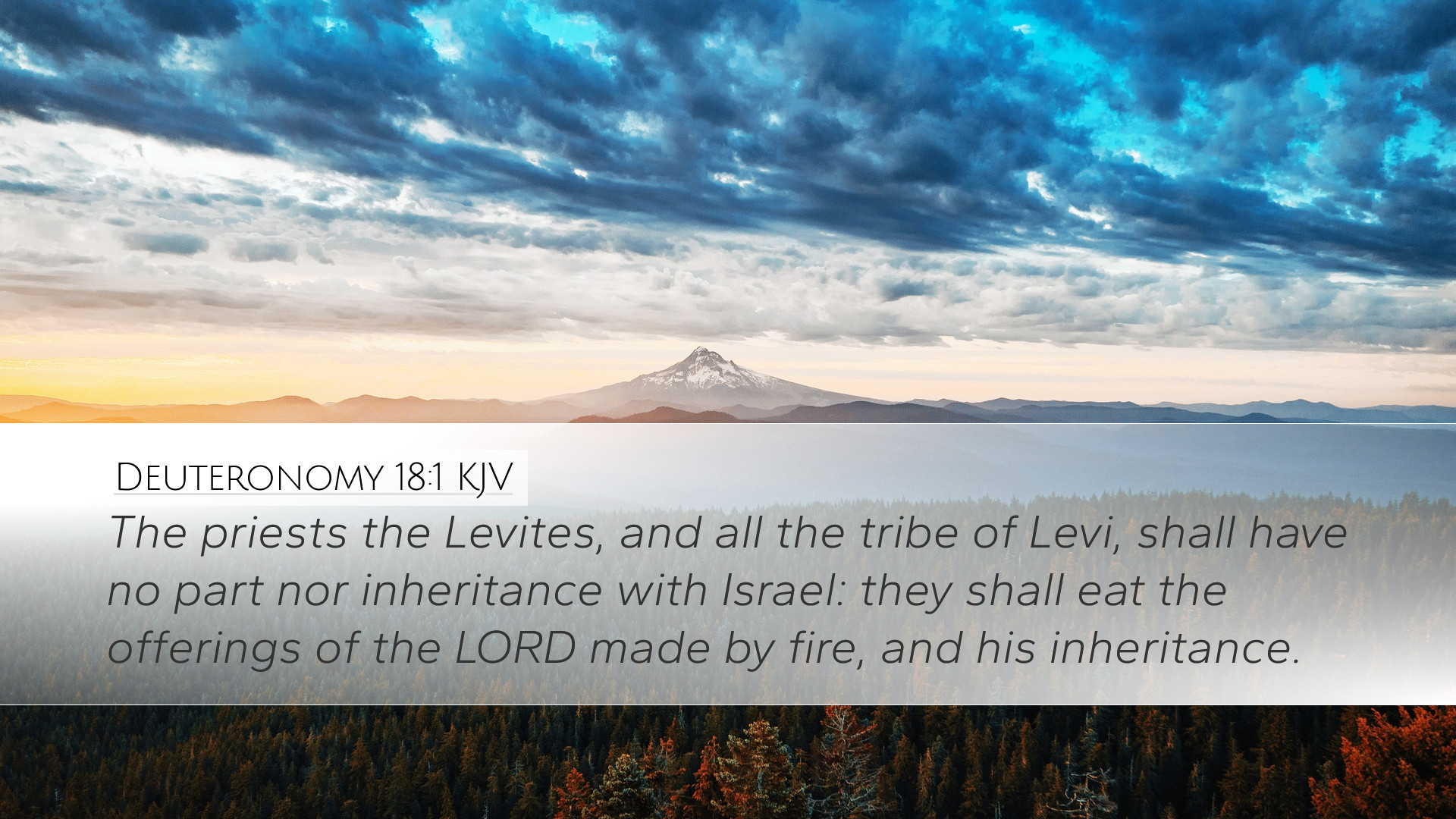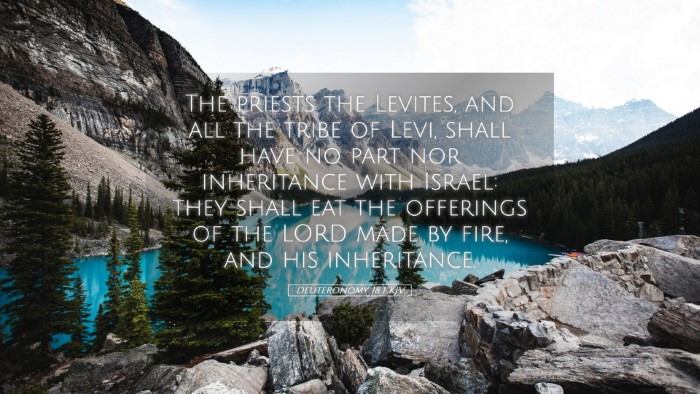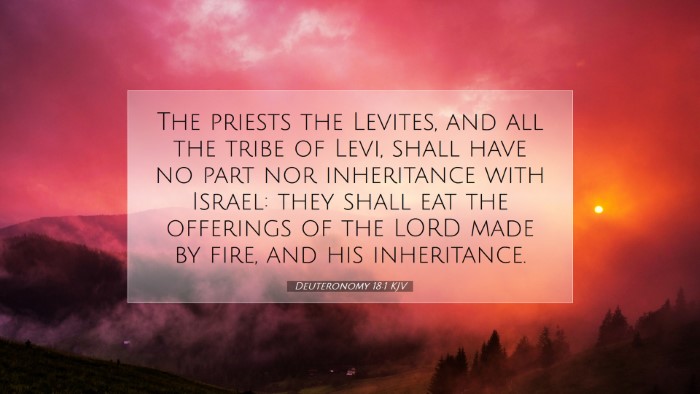Commentary on Deuteronomy 18:1
Verse Reference: Deuteronomy 18:1 - "The priests, the Levites, and all the tribe of Levi shall have no part nor inheritance with Israel: they shall eat the offerings of the LORD made by fire, and his inheritance."
Introduction
Deuteronomy 18:1 provides a pivotal insight into the structure of the Israelite community during the time of Moses. This verse emphasizes the unique role of the Levitical priests within the economy of Israel. Understanding this text is essential for pastors, theologians, and scholars, as it touches upon themes of divine provision, the spiritual leadership in community, and the nature of worship.
The Role of the Levites
1. Chief Responsibilities
- The Levites were set apart for the sacred duties, primarily involving the service of the Tabernacle and later the Temple.
- Matthew Henry notes that the Levites had the responsibility of officiating in religious rites, preserving the law, instructing the people, and standing as intermediaries between God and Israel.
- Albert Barnes adds that their primary duty included offering sacrifices and performing other rituals associated with worship, emphasizing their role in maintaining the covenantal relationship between God and Israel.
The Concept of Inheritance
2. Divine Inheritance versus Land Inheritance
- The phrase "no part nor inheritance with Israel" signifies that the Levites were not to receive a land inheritance like the other tribes.
- According to Adam Clarke, this was by divine decree, establishing that their reward and sustenance would come from the offerings made to the Lord.
- This aspect of their calling highlights a spiritual inheritance—rather than material wealth, they inherit the service and intimate relationship with God that comes from their unique role.
Provision for the Priests
3. The Offerings of the Lord
- The Levites were to "eat the offerings of the Lord made by fire," which reflects God’s provision. Matthew Henry states that this provision indicates God's care for those who serve Him.
- Albert Barnes echoes this sentiment, proposing that reliance on God’s provisions reminds believers of their dependence on divine grace.
- This provision is a symbol of spiritual sustenance, where the priests, by consuming these offerings, partake in the blessings that flow from God to His people.
Theological Implications
4. Implications for the Community
- The absence of a land inheritance for the Levites established a distinctive relationship between them and the other tribes, fostering a dependency on the collective community for sustenance.
- This system of support developed a bond between the clergy and common people, allowing the Levites to fully dedicate their lives to God and the service of others, reflecting a model of ministry that emphasizes community collaboration.
- As Adam Clarke points out, this structure of priestly service meant that the blessings of worship were inherently communal, emphasizing the Israelites’ shared responsibility to support their spiritual leaders.
Applications for Today
5. Lessons for Modern Ministries
- This passage offers enduring principles for church structure and pastoral care today. Pastors and church leaders can learn the importance of community support and collective worship.
- The Levites remind modern believers of the need for dedicated spiritual leaders who devote themselves to prayer, teaching, and service.
- Furthermore, the value of contentment with spiritual inheritance rather than earthly wealth remains a relevant theme in Christian ministry and church life.
Conclusion
Deuteronomy 18:1 encapsulates vital truths about the structure of worship and the role of the Levites in Israel. By dissecting this passage with insights from public domain commentaries of Matthew Henry, Albert Barnes, and Adam Clarke, one can appreciate the text's richness and its implications for faith communities today. The Levitical system serves as a model of service, dependence on God, and the community's responsibility to care for its spiritual leaders.


